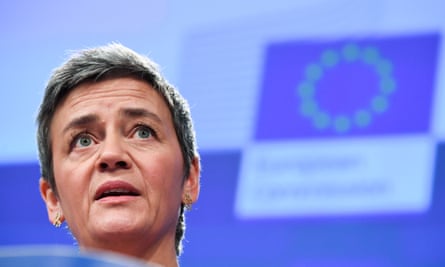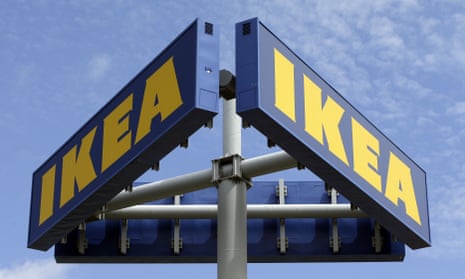The EU has launched an “in-depth” investigation into the tax affairs of Ikea after claims the retailer’s deals with the Dutch government have saved it around €1bn (£880m).
Initial findings from the European commission suggest the Swedish firm has been able to use a Dutch subsidiary to heavily reduce its tax bill on revenue from stores around the world.
The brand, whose two main sister companies paid €1.07bn in tax on pre-tax profits of about €4.46bn in the last financial year, has a complex corporate structure with offshoots in Luxembourg, Liechtenstein and the Netherlands.
“All companies, big or small, multinational or not, should pay their fair share of tax,” the EU’s commissioner Margrethe Vestager said in a statement.
“Member states cannot let selected companies pay less tax by allowing them to artificially shift their profits elsewhere.”
The commission’s investigation concerns the tax arrangements since 2006 of Inter Ikea Systems, a subsidiary in the Netherlands.
In the early 1980s, Ikea switched its business to a franchising model, with shops being independently owned but paying a fee of 3% of their turnover to Inter Ikea Systems, a subsidiary of Inter Ikea group, also based in the Netherlands.
The Ikea shops are entitled to use the retailer’s trademark, and receive know-how to operate and exploit its concept.
A report by the Green party in the European parliament last year claimed Ikea had been able to avoid €1bn in EU taxes between 2009 to 2014 through the structure.
An EC spokesman confirmed that its preliminary investigation indicated that two tax rulings, granted by the Dutch tax authorities in 2006 and 2011, had significantly reduced Inter Ikea Systems’ taxable profits in the Netherlands.
In the first tax ruling, Inter Ikea was allowed to pay a large licence fee to another Ikea unit in Luxembourg, so shifting revenue to a jurisdiction where it remained untaxed.

In 2011, in the wake of a change in the law in Luxembourg following pressure from Brussels, Inter Ikea arranged a second ruling with the Netherlands, involving a loan arrangement with an Ikea unit in Liechtenstein.
Sven Giegold MEP, tax spokesman of the Greens group in the European parliament, said: “As [with] many other big companies, Ikea has been using a series of tax loopholes for years to avoid paying taxes.
“The investigation should not be limited to the Netherlands, obviously the core of Ikea’s tax avoidance system, but should also look at Luxembourg and Belgium.
“We expect that in the end Ikea has to pay back state aid to the Dutch state. We don’t talk about peanuts in missing tax revenues.”
A senior Dutch EU official told AFP: “The Netherlands fully supports the commission’s work.”
Ikea said in a statement that its tax deals in the Netherlands did not breach EU laws. “It is good if the investigation can bring clarity and confirm that,” the company added.
However, the revelations could prove embarrassing to the commission president, Jean-Claude Juncker, who was prime minister of Luxembourg when the tax deals were made.
The move to investigate Ikea is just the latest in a slew of cases that involves member states being ordered to recover billions of euros from companies such as Starbucks, Apple, and Amazon, due to state aid infringements.
Vestager ordered Starbucks to pay roughly €30m in back taxes to the Dutch in 2015. Ireland said earlier this month it will begin collecting the €13bn it was ordered by Vestager to collect from Apple.
Ikea was founded in Småland, Sweden in 1943 by Ingvar Kamprad, an infamously frugal man, who is estimated to have a total fortune of about €65.5bn. His personal affairs are also highly complex, however, involving a family foundation based in Liechtenstein.
“I don’t think I’m wearing anything that wasn’t bought at a flea market. It means that I want to set a good example,” Kamprad told the Swedish channel TV4 in 2016.
